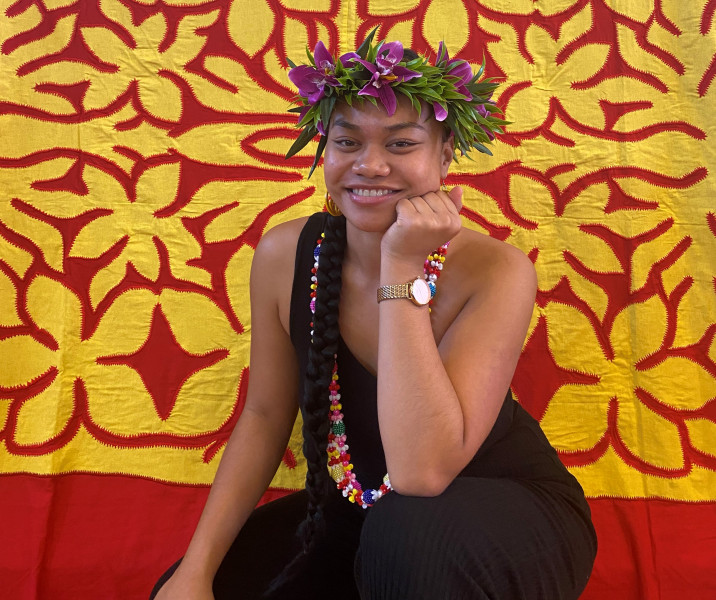Language helps reconnect youth to roots
Language helps reconnect youth to roots

Learning the language of her ancestors has helped 22-year-old Tiare (Rose) Roti Aro Atirai (pictured) reconnect with her aka (roots).
The New Zealand-born Cook Islander is learning the Kuki Airani Pukapuka dialect, as her father stems from the area, as well as the Manihiki dialect, where her mother is from.
“This process has brought me much closer to my grandparents,” Tiare shares.
“Being raised in New Zealand, I experienced a slight cultural disconnect but these past few years learning the reo has enabled development in my cultural identity and brought me closer to my elders.”
Currently in her final year at AUT City Campus completing a conjoint degree of Business and International Hospitality Management majoring in Accommodation and Management, Tiare works part-time at the Cook Island Development Agency NZ (CIDANZ) in youth and eFamily support while also managing a small cosmetics business on the side.
Tiare has put her hand up to be the youth advocate for the Ministry for Pacific Peoples’ (MPP) Leo Moana o Aotearoa – the Pacific Languages of Aotearoa Survey, due to her passion for language.
This survey is the first of its kind, investigating the use of and attitudes to Pacific languages in Aotearoa.
Since the last comprehensive survey of Pacific languages in Aotearoa, Pacific language use in Aotearoa has declined and, in some cases, significantly.
The survey is designed with the intention to contribute to policy development toward the revitalisation, maintenance, and sustainability of Pacific languages in Aotearoa.
A key group MPP is targeting is New Zealand-born Pacific youth, and people from the Realm countries, where the language is at risk.
Tiare says nurturing and retaining Pacific languages should be a priority in Aotearoa.
“It preserves and revitalises the history of our culture and language.
“It also creates a sense of community among our Pacific people to feel safe in the country they reside in, especially if it is not their homeland.”
On a larger scale, Tiare says it would be brilliant to see Pacific languages heavily implemented in schools, especially languages which are becoming lost through generation to generation.
“Given the current development in emerging technologies, most of which are primarily used by our mapu, I believe it would be pretty awesome if there was a digital platform specifically made for youth (by youth) to share their insights on culture and language, giving our mapu authority over the future of Pacific languages.”
